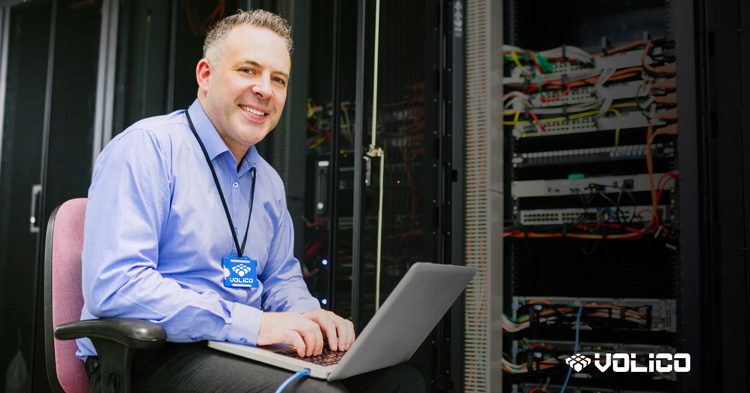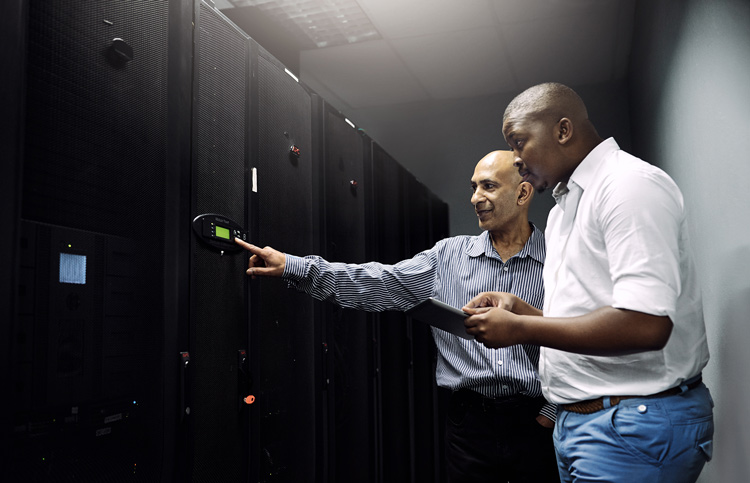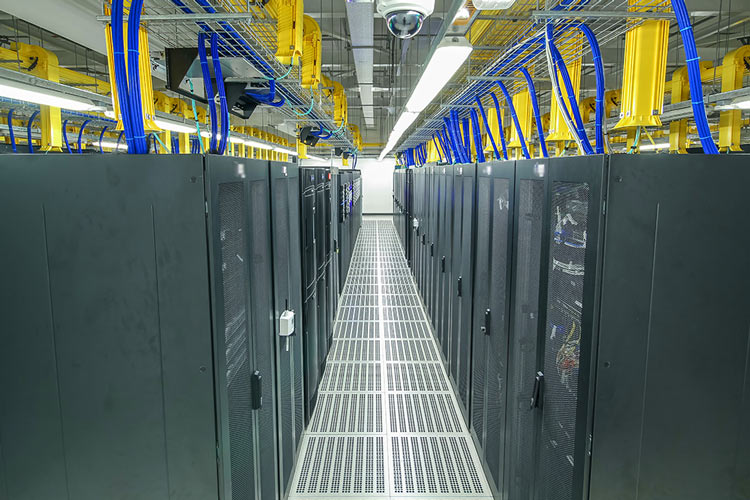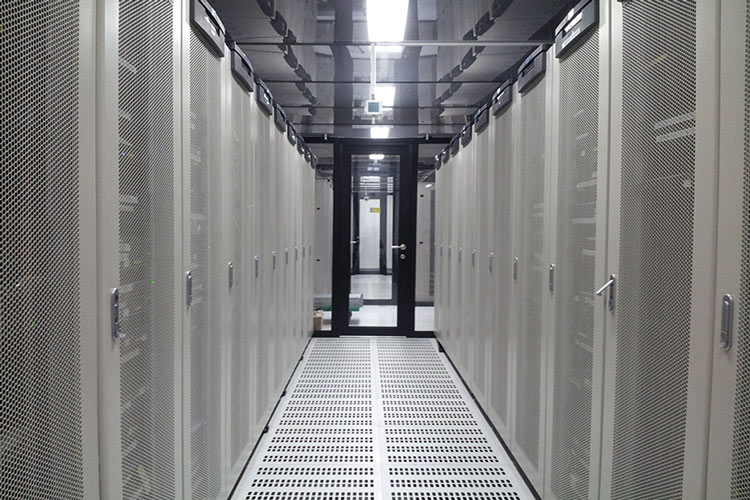There comes a point in a business’s life when the public cloud becomes too expensive to maintain the entire IT infrastructure in. Or when scaling becomes urgent, and the server room has already outgrown the capacity of the on-premises space previously set up for this purpose. Building a private data center from zero is quite a costly endeavor, as well. This is where colocation data centers become relevant: in these facilities, you bring your own hardware, share the data center responsibilities with the provider, and benefit.
So, who’s responsible for what in the colocation data center?
Depending on the background and degree of informedness of customers, what is understood by colocation can sometimes vary. And yes, sometimes the data centers themselves have slight differences in their way of operating, as well as the extras and services they offer. However, the core of this model should be, in fact, more or less the same with all colocation providers.
Understanding the data center responsibilities of the provider and customer can help both parties keep operations smooth. In this article, we will unpack the individual tasks of provider and tenant to help you make the most informed decision for keeping your data safe with colocation.
How does Colocation Work?
Colocation refers to a data center or telecom facility where customers can rent space, networking hardware, storage, and other necessary hardware and services that facilitate data management. Colocation data centers usually offer space for rent by rack, cabinet, cage, or room, depending on the specific needs of the business. In addition to the building and space, the colocation data center provides power and cooling, network and bandwidth, connectivity, internet access, and physical security. On top of this, most colocation data centers offer managed services, which can make things more efficient for the client.
On the other end, customers bring their own servers, storage, and network devices to the colocation facility. When colocation is misunderstood, clients expect, for some reason, to completely outsource their server management responsibilities to the colocation provider. However, this is not the case, and the client still remains in charge of specific server management responsibilities.
Deciding which workloads to colocate is also the client’s responsibility. Colocation data centers are highly scalable, capable of supporting complete IT infrastructures, or just a portion of it. There’s a lot of flexibility regarding these things, which can be a big advantage for small businesses, but large enterprises as well.
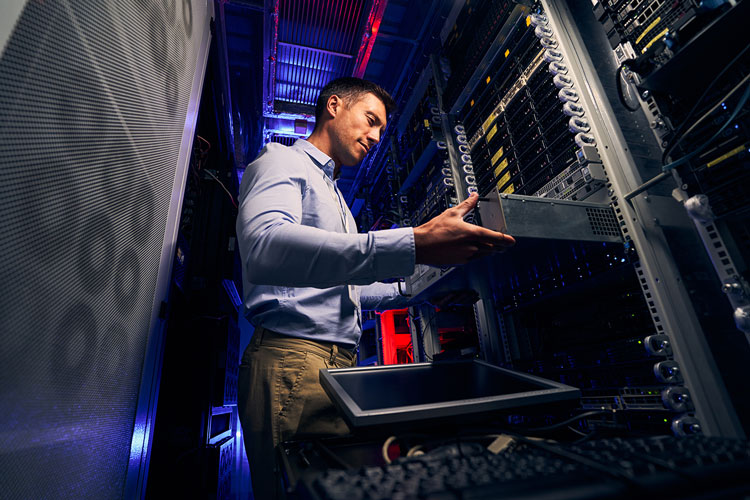
Sharing Data Center Responsibilities
Understanding the responsibilities of both the providers and the tenant is crucial for establishing a well-functioning partnership without confusion and errors. Whether they colocate partial or complete infrastructures, customers still remain with the specific deployment management duties.
Data Center Provider’s Duties
As mentioned above, among the data center responsibilities of the colocation provider are providing space, power, cooling, and security. Each customer has their own needs in every respect, which can significantly vary. The details of each agreement are specified in a contract, which also includes any additional services the client is asking for.
Additional Services
Managed Services offered by colocation providers can be crucial in certain unexpected situations. Smart hands and remote hands services can offer assistance with several tasks, be it an emergency or technical routine. Opting for this allows clients to outsource even more data center responsibilities to the colocation provider’s team of technicians, allowing them to focus on the core operations of their business.
Speaking of unexpected, when choosing a colocation provider, look for one that provides professional disaster recovery and business continuity services solutions. Being prepared for these situations makes the impact smaller, and having a reliable data center at your back can make a huge difference in how fast your business can get back to normal operation.
At Volico Data Centers, managed services include the following options:
- Managed Security
- Managed Firewall
- Managed Backup
- Unified Threat Management
- Managed Clustering
- Load Balancing
- Monitoring Services
- Migration Services
Data Center Maintenance
In order to provide reliable, high-quality, peak-performance infrastructure, colocation providers have the additional responsibility of monitoring and maintaining everything that falls outside of the client’s range of responsibilities. These encompass all data center components and typically fall under the following categories:
- Preventative Maintenence is a series of efforts with the aim of preserving and lengthening the lifecycle of the complete infrastructure and all of its components.
- Predictive Maintenance is a set of measures that follow changes occurring in the condition of the infrastructure to predict and prevent failures before happening.
- Corrective Maintenance is a set of actions targeting and correcting faulty or unsatisfactory functioning of systems or components where fixing can prevent a possible failure.
- Emergency Maintenance encompasses the actions and measures of responding to a failure or critical malfunctioning of a system or component.
Periodical Testing
Testing assets is also part of the provider’s data center responsibilities. The different assets have pre-defined testing and maintenance schedules that providers have to respect in order to ensure that these assets can perform as expected in case of an emergency. Some of these are the following:
- Testing generator integrity every 30 days or before an expected natural catastrophe, heavy weather conditions, or even a scheduled power interruption.
- Replacing generator batteries every two years to ensure that in case of an emergency or an outage, those can sustain the load and serve as a replacement as expected and required.
- An annual thermal scanning of all UPS components
- Testing the entire cooling system, from HVAC units to fans, quarterly.
- Testing all fire protection equipment to guarantee that the equipment is functional, in the required condition, and adheres to general rules and regulations regarding its aspect and use. This test is run according to the periodicity defined by local laws.
- Inspecting fire extinguishers is performed each month.
Data Center Customer’s Duties
After installing all assets in the colocation data center, configuring, monitoring, and maintaining systems falls on the customer’s side of data center responsibilities. Of course, if smart hands and remote hands services are included in the contract, some of those duties can be outsourced to the provider. Unless requested in the contract, data center technicians don’t enter customer spaces after offering initial assistance with racking and stacking efficiently. So, the client is responsible for maintaining the space and avoiding possible errors that can lead to problems.
Some of the most basic precautions are regarding how customers enter and what customers can’t take with them into the data center space. This includes food and any kind of beverages, and clients should wear proper shoes every time they enter the facility for safety reasons. Respecting the data center security protocols is self-explanatory. Additionally, keeping the space clean and dust-free is an important rule because dust particles can damage equipment. Respecting those general rules can lower the risk of accidents in the data center and contribute to better security.
It’s among the customer’s data center responsibilities to periodically check on their equipment and make sure that everything’s okay and working as it should. Periodical checks can reveal if any changes are necessary. It’s also an opportunity to communicate any needs or adjustment requests to the provider.
As for security and surveillance, colocation providers are responsible for the security systems monitoring the facility. However, if a customer wants extra surveillance cameras installed in their private server spaces, that’s a different category and treated like one of the customer’s assets. Everything from setting them up to monitoring falls under the customer’s responsibility.
Migrate With Your Needs in the Forefront
Since every business has specific requirements, it’s crucial to start a migration process by understanding those needs and communicating expectations. Data migration can be challenging for IT departments, and finding the most efficient way to carry it out is crucial. The bigger the quantity of data you want to move, the more likely errors will appear, so understanding the process and needs is essential to a successful migration.
Migration can be a lengthy and challenging task, with a risk of data loss if errors appear during the process. Because of this, following a thorough analysis, Volico Data Centers prepares complete migration services tailor-made to each client’s specific case. With this approach, migration is less of a headache, and data integrity is easier to ensure.
Learn more about colocation and data center responsibilities, and discover how our migration services put your company’s needs at the forefront of the whole process. Call (305) 735-8098 to talk to a member of our team, leave us a message in chat, or start to feel at home by taking our data center tour.
